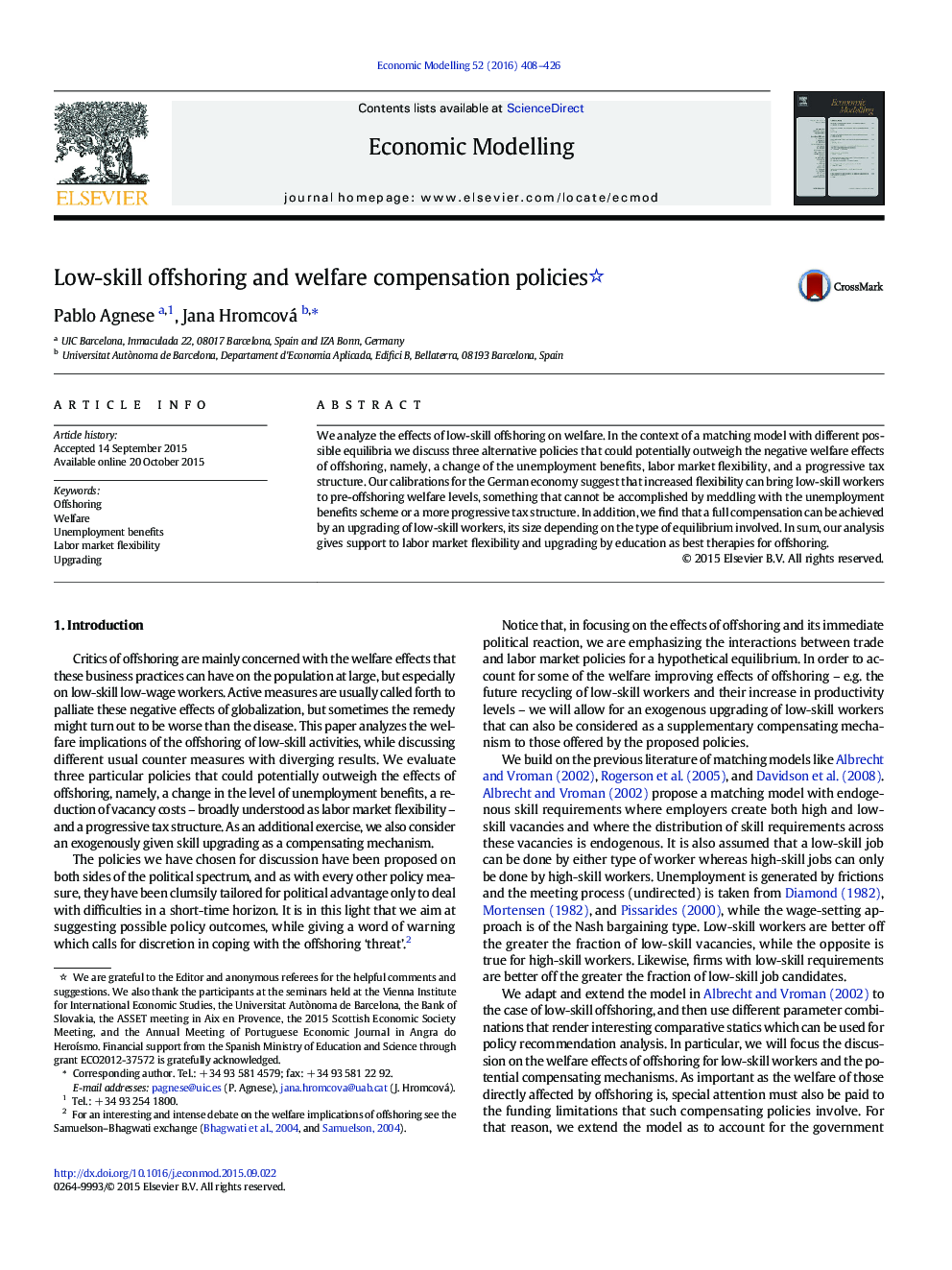| Article ID | Journal | Published Year | Pages | File Type |
|---|---|---|---|---|
| 5053643 | Economic Modelling | 2016 | 19 Pages |
â¢We analyze the effects of low-skill offshoring on welfare.â¢We evaluate several mechanisms which can compensate for the negative effects.â¢We use a matching model with frictions with two types of workers and firms.â¢Labor market flexibility is recommended as a welfare improving tool.â¢Skill upgrading of low-skill workers is also encouraged.
We analyze the effects of low-skill offshoring on welfare. In the context of a matching model with different possible equilibria we discuss three alternative policies that could potentially outweigh the negative welfare effects of offshoring, namely, a change of the unemployment benefits, labor market flexibility, and a progressive tax structure. Our calibrations for the German economy suggest that increased flexibility can bring low-skill workers to pre-offshoring welfare levels, something that cannot be accomplished by meddling with the unemployment benefits scheme or a more progressive tax structure. In addition, we find that a full compensation can be achieved by an upgrading of low-skill workers, its size depending on the type of equilibrium involved. In sum, our analysis gives support to labor market flexibility and upgrading by education as best therapies for offshoring.
